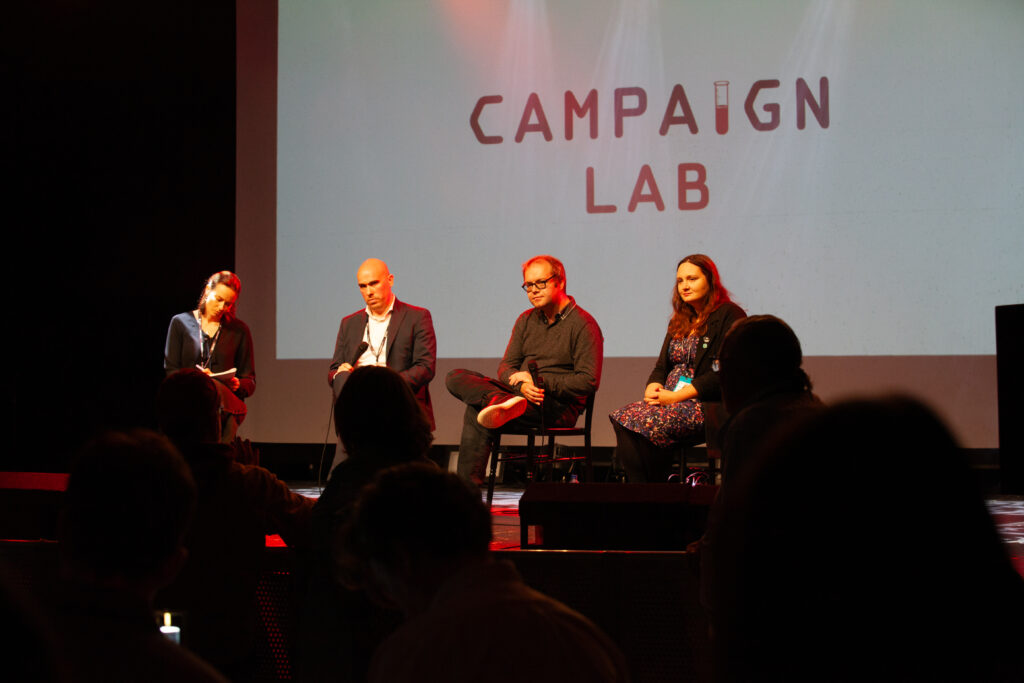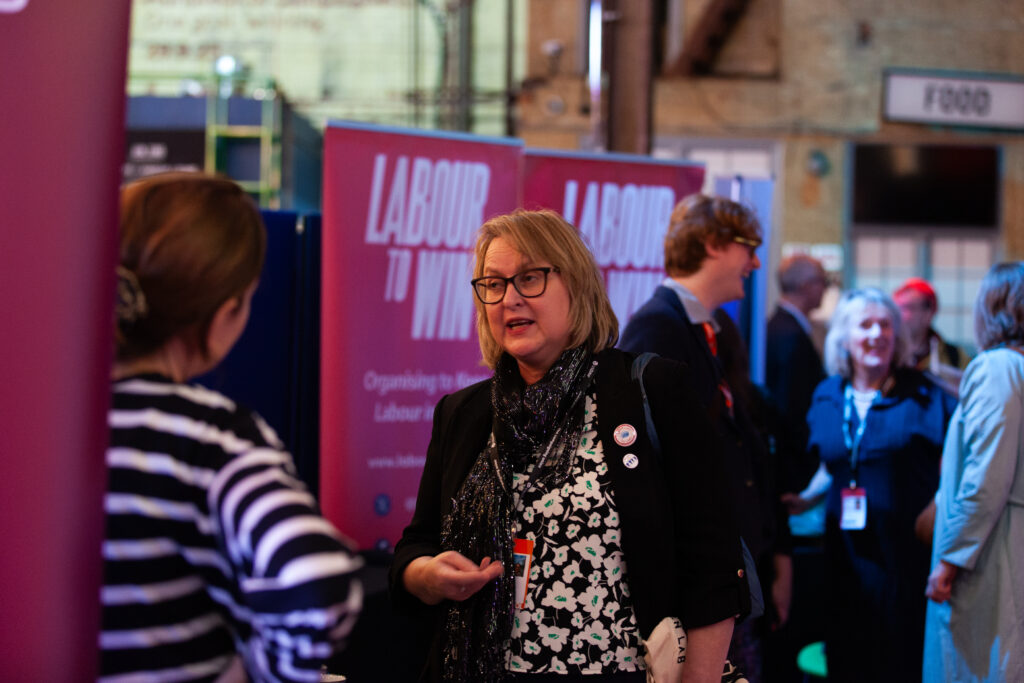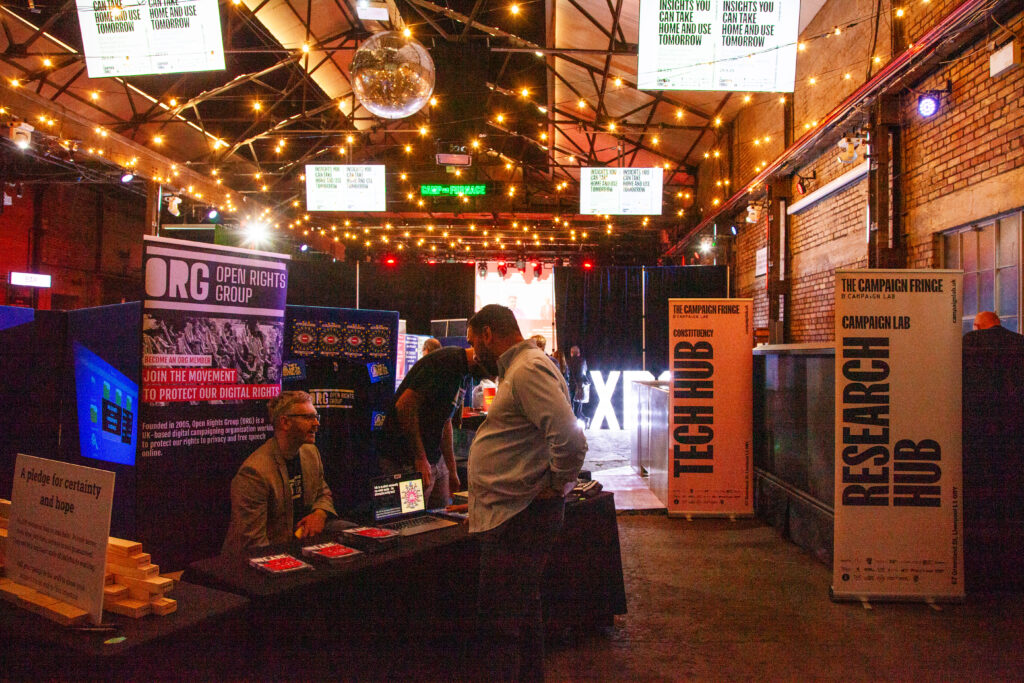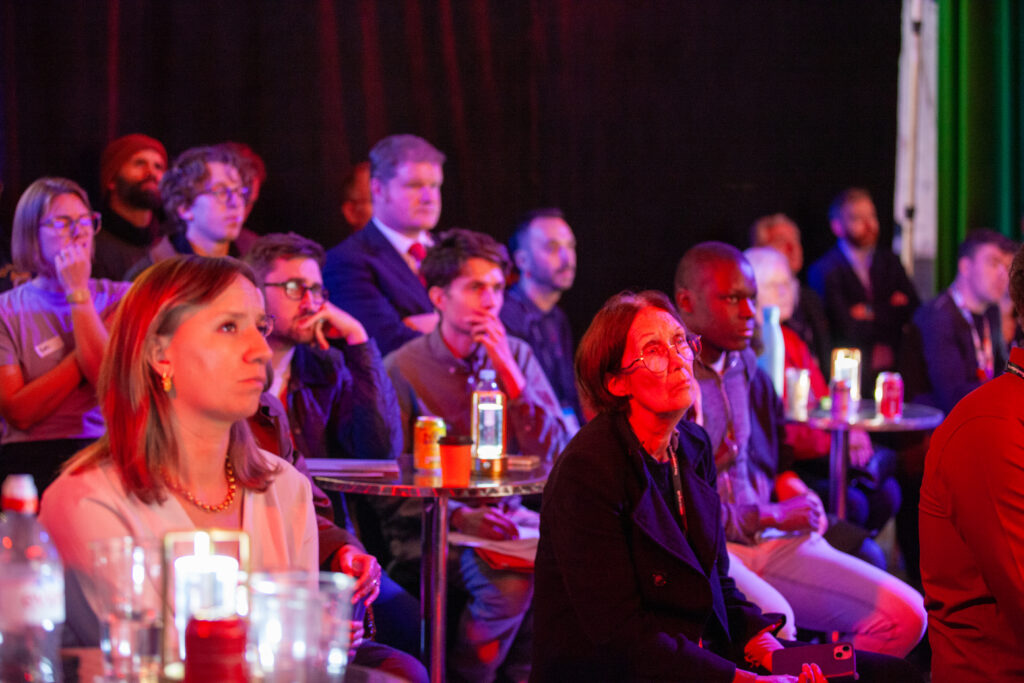



On Sunday 29 September, just ten minutes from the Labour Conference, almost 400 attendees filled Camp and Furnace for The Campaign Fringe: a one-day exhibition programme focused on what works in progressive campaigning. The space was buzzing, alongside the talks, a lively Expo stitched together builders, researchers and organisers.
The Labour Conference is rich with policy debate, but the one thing that binds almost everyone across the ecosystem – MPs’ offices, unions, CLPs, charities, activists and data wonks – is campaigning. There’s no other single, dedicated venue inside the Conference that treats campaigning as a craft in its own right and foregrounds the testing, iteration and operational discipline that leads to political success.
Because the Fringe sat just outside the Conference perimeter, people who didn’t have a pass such as local organisers, technologists, creators and volunteers were able to get in the room. In a movement that too often meets in silos, the Fringe created a common workshop for ideas.
The day opened with a grounded conversation on AI in campaigning. Chaired by Elizabeth Seger (Demos) with Hannah O’Rourke (Campaign Lab), Dan Howl (BCS) and Gavin Freeguard (Connected by Data), the session interrogated the risks and opportunities presented by the presence of AI in campaigning infrastructure: useful where it shortens the path from ideation to action, risky where it accelerates the spread of misinformation or hides judgement calls.
That appetite for clarity resurfaced in the NEU’s closing session on universalism versus populism. Under Sarah Kilpatrick’s chairing, Shavanah Taj, Neal Lawson, Michael Agboh-Davison and Ian Byrne MP argued that the power of the universalist politics found in Free School Meals for All, the Winter Fuel Allowance and Ian Byrne’s Right to Food campaign should not be underestimated in our fight against the radical right. Universal frames, they argued, build broader coalitions and are easier to explain, administer and defend.
In between, LabourList convened a creators and practitioners deep dive into the new media environment and the right’s success within it. Luke O’Reilly (LabourList) led a discussion with Andy Twelves (Express Columnist), Nadia Meeran (411), Gordon McKee MP, Rhys Everquill (Leicester Gazette) and Berry Cochrane (Forward Action) that provided both an analysis of the right’s new media dominance and guidance for progressives seeking to establish a presence of their own. The advice was pragmatic; progressives need to design platform-specific content, communicate using credible, authentic voices and measure and respond to what the algorithm actually rewards.
The Small Axe then posed the question facing many in the room: with a Labour government, how do we convert access into outcomes? Matthew McGregor (38 Degrees), Nathan Oswin (Hillsborough Law Now) and David Wilson (NEU), and Mari Burton (NEU) highlighted the importance of balancing advocacy approaches and understanding the political landscape to maximise impact, with speakers emphasising that successful campaigns require both strategic timing and sustained engagement with decision-makers.
A standout for immediate application was HOPE not Hate’s briefing and workshop on stopping Reform. After a short political-intelligence overview, the room split in two with one group focused on accountability where Reform already hold office; another on winning against them in the upcoming 2026 elections taking place in councils, the Senedd and Holyrood. Harnessing the knowledge and creativity of those present to draw up strategies in real time, this packed session demonstrated that campaigning is done best when co-produced by the grassroots.
Good campaigning is not just about elections, however. As year-round campaigning engines, the work of unions neither begins nor finishes with the electoral cycle and this gives them a wealth of experience that progressives should draw from. Our panel on this topic, chaired by Conor McGurran (TUC), featured Claire Peden (Unite For a Workers’ Economy), Gavin Edwards (UNISON) and Amanda Gearing (GMB) drawing out how innovative campaign approaches can energise activist bases, build community legitimacy and establish the infrastructure needed to win over longer time horizons.
Winning requires authentic and sustained on-the-ground campaigning, but it also requires deft use of new and traditional media. In a panel convened by Tigerlily Productions, who alongside award-winning filmmaker Havana Marking made the film UNDERCOVER: Exposing the Far Right, we examined how progressives can use the media to counter hate. Using the BAFTA-nominated documentary as a case study the panel, chaired by Zoë Grünewald (The Lead) and featuring Havana Marking, Joe Mulhall (HOPE not hate) and Patrick Hurley MP, unpacked how to expose bad actors without amplifying them, and how to protect people who are doing that work, even when under pressure and threat.
Running parallel to the main stage, the team behind Labour’s election victory at 411 delivered four tightly scoped workshops. Ned Mendez took participants inside social-listening and counter-disinformation systems; Annie Johnson and Rosa Hibbert mapped low-cost tactics for local elections; Isaac Healey opened the creative process behind content that reaches beyond the usual suspects; Charlotte Beeden showed how to find and work with local creators who carry real trust. The common denominator: what to try this week, how to measure it next week.
Between sessions, the Campaign Expo did its quiet work connecting and upskilling activists. Bringing together agencies (Forward Action), organisers (Unison, Unite for a Workers’ Economy, Open Rights Group, Scientists for Labour), builders (Newspeak House, Poteris, Common Knowledge) and our own Campaign Lab research, the expo served as the nexus where campaigners of all stripes came into contact with the ideas, tactics and connections they needed to win.
The fringe was a huge success but the task now is to keep that momentum alive. If you tried something sparked by the Fringe, tell us what worked and what didn’t. If you missed the Fringe, our Hack Nights run year-round – if you have technical skills come along and plug into the work. Alternatively, stay connected to the cutting edge of campaigning and sign up to our Newsletter.
Finally – a big thank you to every chair, speaker, partner, attendee and exhibitor who made the trip to Liverpool. The Campaign Fringe exists to circulate good ideas faster. Judging by the conversations on the Expo floor, it did exactly that. See you at the next one!
